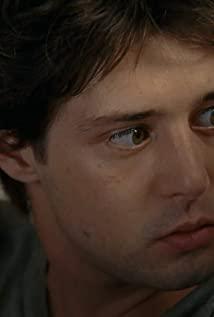In the movie "The Beauty of Flowers", a 17-year-old French girl, Isabelle, is young and beautiful. It seems that such an age cannot have more requirements for life. She didn't know what she wanted, but she knew what she didn't want. A short encounter disappeared in the sea breeze as the summer vacation ended. She met a German boy, and even went out on a midsummer night with her parents behind her back for a secret date, walking on the beach, eating ice cream, and doing all the things lovers do. When the two were making out, she saw another confused self looking at herself lying on the beach. She doesn't believe in love.
She was targeted by pimps (unfortunately, not scouts) in the days when pimps were on campus. At first, she refused, too, but she recited the phone number that the pimp had read only once. A week later, with a game mood, she started her own adventure. The movie doesn't tell much about why she made this choice, until the sudden death of her elderly En-ke, and her secret life is revealed. Her mother, a doctor, did not understand her behavior and forced her to go to a psychiatrist for treatment, and she also confiscated all the money she earned.
The psychiatrist kept visiting, trying to understand her intentions. In fact, how could she understand her motives? She is not short of money, does not like luxury goods, and she has no hope of being taken care of by any benefactor. The only explanation she had for her behavior was that it was like a game — chatting online, making an appointment on the phone, and then using her voice to imagine what kind of person it would be, to explore the hotel.
Maybe her behavior is not difficult to understand, because she doesn't always get bored with boys of the same age immediately after getting along with them for a short time, she has no intention to please them, so if others want to enjoy their bodies, there is always a price to pay , such a relationship seems simpler and clearer, and less hurtful. Or maybe, she is just too young to ask for nothing in life, and it is easy to get bored without desire, so she uses this most secret way to explore another possibility.
Isabelle is very sensitive, and the entire film has very few lines, and most of them are short, but the tension between the characters is well expressed everywhere. The conversations between Isabel and the psychiatrist are wonderful, and Isabel and Peter (who has an affair with Isabel's mother)'s wife.
(After Isabel's story came to light, her mother told her lover, Peter, that the Peters hired Isabel for baby-sitting.)
"Why don't you want Peter to send me home?"
- "I said he had to get up early."
"You don't trust me. - "
Of course not."
"Then you don't trust him."
- "What are you trying to say, Isabelle."
"I know mom told you everything, anyway, the threat is not me"
- "You are What does it imply?"
...
Isabel reminded Peter's wife that her husband had an affair with her mother, but she didn't say it clearly; provoked Peter's wife's hypocritical care and contempt for herself, but she was careful to prevent her from having an attack. There are many such dialogues in the movie. On the one hand, it is the pleasure of the girl to unveil the mask of the adult world, and on the other hand, it is the panic of the adult world when it is exposed. The wanton youth, the final struggle before entering the adult world, is subtle yet precise.
PS: The poems about youth and the four pieces of music about the seasons in the movie are very beautiful. In the era of shoddy production, it is also a fortunate thing to have a good melody.
View more about Young & Beautiful reviews











